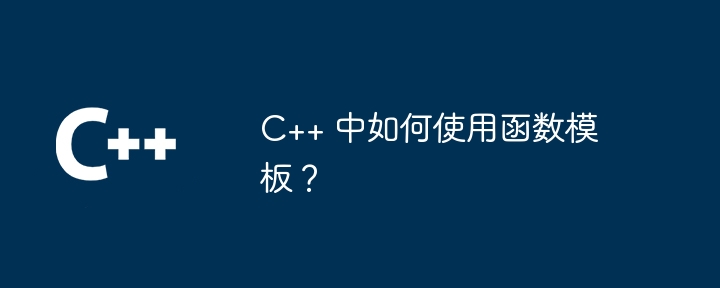
C function templates allow you to create functions that work with multiple data types, improving code reusability. The syntax is: template

How to use function templates in C
Function templates are a powerful feature in C that allow you to create functions that can be used in Functions for multiple data types. This improves code reusability and reduces the amount of duplicate code.
Function template syntax
The syntax of function template is as follows:
1 2 3 4 |
|
where T is the type parameter. There can be multiple type parameters, separated by commas.
Using function templates
To use function templates, simply specify the type parameters after the function name. For example, the following code declares a template function that calculates the sum of two numbers:
1 2 3 4 |
|
Now you can use this function with any data type, for example:
1 2 |
|
In practice Case
The following is a practical case of using function templates in data structures:
1 2 3 4 5 6 7 8 9 10 11 12 13 14 15 16 17 18 19 |
|
This stack class can use any data type, for example:
1 2 3 4 5 |
|
Conclusion
Function templates are a powerful tool in C to improve code reusability and reduce duplicate code. By understanding the syntax of function templates and using practical examples, you can take advantage of this feature to write more flexible and maintainable code.
The above is the detailed content of How to use function templates in C++?. For more information, please follow other related articles on the PHP Chinese website!
 What are the differences between c++ and c language
What are the differences between c++ and c language
 Recommended learning order for c++ and python
Recommended learning order for c++ and python
 Cost-effectiveness analysis of learning python and c++
Cost-effectiveness analysis of learning python and c++
 Is c language the same as c++?
Is c language the same as c++?
 Which is better to learn first, c language or c++?
Which is better to learn first, c language or c++?
 The difference and connection between c language and c++
The difference and connection between c language and c++
 C++ software Chinese change tutorial
C++ software Chinese change tutorial
 Cost-effectiveness analysis of learning python, java and c++
Cost-effectiveness analysis of learning python, java and c++




